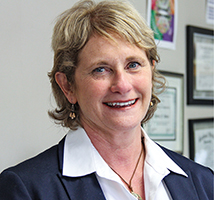
The Energizing Impact of Micro-Credentials in Kettle Moraine
BY PATRICIA F. DEKLOTZ/School Administrator, November 2016
 |
Patricia Deklotz
|
Imagine having the opportunity to redefine employee compensation for your school district. Following passage of the infamous Wisconsin Act 10 legislation that significantly reduced the bargaining authority of teacher unions, the opportunity was within my influence to create a pay structure that builds the capacity of educators, respects individual circumstances and aligns resources to school district goals.
While many school boards around our state were jumping on a “pay for performance” bandwagon, I doubted this would meet our needs. When building a culture of trust and collaboration among staff, we couldn’t afford a compensation system that might breed fear or competition, undermining our larger goals. We needed a system that would energize and encourage educators, empowering them to be change agents.
Learning from respected leaders at the Mayo Clinic and General Electric, I heard a message that was loud and clear. To attract and retain high-quality staff, compensation needs to demonstrate respect for individuals within industry-specific standards. But the working environment and an individual’s ability to influence decisions and inform the direction of the organization are as important as financial compensation.
Aligned to Goals
How could I, as the district superintendent, better engage educators in our work, tapping into their expertise and insights as we transformed our system? Could we transition away from the traditional “step and lane” pay model to one that personalizes learning for our adults, just as they personalize learning for students? How would we align the work of individuals to accomplish the goals of the system?
When I discovered the micro-credential work of Digital Promise, a bipartisan nonprofit group authorized by Congress, I knew I was on the right track. Micro-credentials are uniquely able to target areas of need and interest specific to an individual and to the organization. Because we recognize micro-credentials with salary increases, we require a pre-approval process, allowing us to give priority to individuals who have aligned their micro-credentials to our district goals. We differentiate according to areas of responsibilities and within length of service and expertise.
To earn a micro-credential requires artifacts. Student work and reflection, along with a teacher’s plans, assessments and self-reflection, are necessary to earn the credential. Demonstrating a growth mindset, if someone misses the mark, the answer isn’t “no” but rather “not yet,” along with constructive feedback to inform the next submission. When demonstrated successfully, we reward the learning immediately rather than requiring the educator to accumulate a certain number of credits or a new academic degree.
A kindergarten teacher in our district, Lisa Welch, described the new process this way: “Our thinking has shifted from ‘earning credits’ to learning our craft. We collaborate in ways not possible before.”
Teachers are told the amount that will be added to base pay when they receive pre-approval for a micro-credential. They have one year to complete their study and demonstrate their learning. While the amount of compensation varies according to the difficulty or sophistication of the learning, ranging in our district from $200 to $600, educators understand that base pay increases have significant impact over their career.
Wide Engagement
An unexpected benefit of micro-credentials, which we put in place in 2014, is the way they have fostered collaboration and problem solving among staff. They have expanded the virtual boundaries of professional learning communities beyond the walls of a building and the confines of a school day. Educators have suggested micro-credentials that align with district goals and organized study teams to address them.
A high school math teacher, Eric Anderson, says micro-credentialing has changed, for the positive, how educators view their own professional development and career path. “It has enabled educators to personalize what it means to be a career educator for themselves and their classrooms,” he says. “‘One size fits all’ doesn’t work in the 21st century for students or educators. Micro-credentialing is a huge step forward for the profession.”
Whether studying “mainstream strategies with autistic students” or “close reading in disciplinary literacy,” about 60 percent of the 280 licensed educators in Kettle Moraine, a district with 4,000 students, have earned micro-credentials. Another 20 percent are in process. These efforts have resulted in an additional 2.6 percent in the overall base salary, or approximately $1,564 on the average teacher salary of $60,164. Micro-credentials increase compensation over and above the negotiated annual cost-of-living increase.
Equally important is the impact they are having on our recruitment and retention of highly engaged staff. Micro-credentials are making a difference in the lives of our educators and in their classrooms.
Patricia Deklotz is superintendent of the Kettle Moraine School District in Wales, Wis. E-mail:
deklotzp@kmsd.edu. Twitter:
@PDeklotz